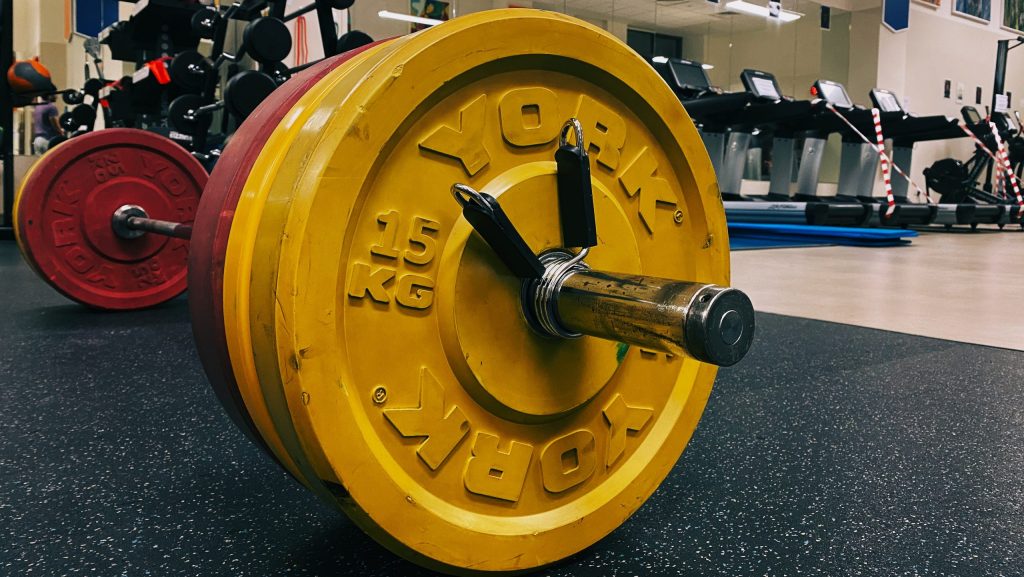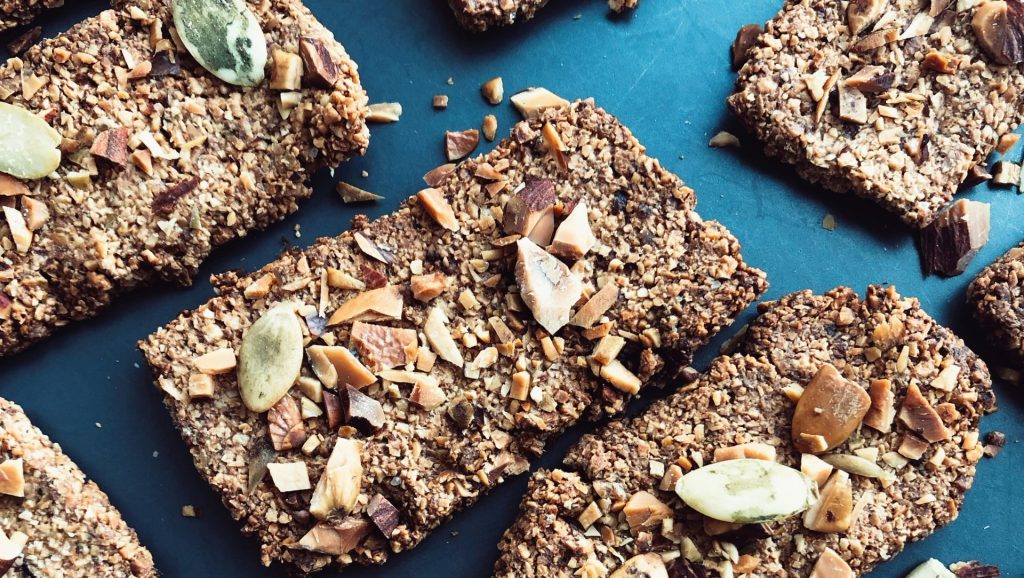Table of Contents
High-intensity training requires comprehensive physical preparation, which includes both endurance and a strategic approach to nutrition and supplementation. The effectiveness of your fitness regimen significantly depends on the nutritional choices you make, influencing your exercise performance and recovery rates.
Did you know that the right pre-workout meal can enhance your performance by up to 20% during high-intensity training sessions?
This article provides a detailed overview of optimal dietary practices to support intense physical activities, covering key topics such as:
- Best Supplements for HIIT: Reviewing supplements that boost energy levels and improve recovery effectiveness.
- Optimal Pre-Workout Meals: Analyzing the best foods to consume before training to maximize energy output and endurance.
- Energizing Snacks for Quick Energy: Identifying effective snacks that can be consumed pre- or mid-workout for an energy boost.
- Hydration and High-Intensity Workouts: Examining the importance of hydration in enhancing performance and maintaining fluid balance.
- Post-Workout Recovery Nutrition: Detailing the best post-workout foods and supplements that help accelerate recovery and muscle repair.
By focusing on these areas, the guide aims to provide actionable information on how to adjust your diet to better support your high-intensity training efforts. Understanding the impact of nutrition on training results is crucial, and this guide is designed to equip you with the necessary knowledge to enhance your fitness regimen effectively.

Best Supplements for HIIT
High-intensity interval training (HIIT) requires rigorous physical preparation and nutritional support to ensure optimal performance and recovery. Proper supplementation can significantly enhance energy levels, improve recovery times, and ensure that athletes can sustain peak output throughout their workouts.
Effective Pre-Workout Supplements for HIIT
Pre-workout supplements are crucial for preparing the body for the stresses of HIIT by enhancing energy, focus, and endurance. Key supplements include caffeine, beta-alanine, and nitric oxide boosters, each serving a specific purpose to improve workout results.
Caffeine, a stimulant, increases mental alertness and decreases fatigue, which can lead to improved workout performance. An optimal dose is typically between 150-300 mg, taken about 30 minutes before exercise. Beta-alanine helps delay muscle fatigue by buffering acid in muscles, which extends the duration and intensity of training. Recommended daily intake ranges from 2-5 grams. Nitric oxide boosters, like L-arginine and L-citrulline, enhance blood flow, improving oxygen and nutrient delivery to muscles, and are suggested at doses of 3-6 grams pre-workout.
“Pre-workout supplements like caffeine, beta-alanine, and nitric oxide boosters are effective for enhancing energy, focus, and endurance in HIIT.”
Creatine and Performance
Creatine supplementation increases the availability of creatine phosphate in the body, aiding in the rapid regeneration of ATP, the primary energy carrier. This is particularly beneficial during HIIT where quick energy bursts are critical. Regular use of creatine leads to improvements in strength, power output, and muscle mass, which are beneficial for HIIT participants. A daily dosage of about 5 grams is effective, whether taken before or after workouts. Benefits extend beyond performance enhancement to faster muscle recovery and increased glycogen storage, essential for recovery in HIIT.
“Regular supplementation with creatine can lead to significant improvements in strength, power output, and muscle mass, making it especially beneficial for HIIT enthusiasts.”
BCAAs for Recovery
Branched-chain amino acids (BCAAs) are essential for muscle recovery and growth. They are unique in that they are metabolized directly by muscle tissues, not the liver, providing quick energy and supporting protein synthesis after exercise. Using BCAAs before or during HIIT reduces muscle damage and soreness, speeds up recovery, and enhances fat metabolism. The recommended dosage for optimal effects is between 5-10 grams, taken before or during exercise.
| Supplement | Primary Benefit | Recommended Dosage |
|---|---|---|
| Caffeine | Enhances mental alertness, reduces fatigue | 150-300 mg pre-workout |
| Beta-Alanine | Buffers acid in muscles, increases endurance | 2-5 grams pre-workout |
| Nitric Oxide Boosters | Improves blood flow and nutrient delivery | 3-6 grams pre-workout |
Supplements play a critical role in preparing the body for HIIT by enhancing performance capabilities and facilitating quick recovery. By incorporating the right pre-workout and recovery supplements, HIIT participants can ensure they meet their training demands effectively. Continue reading to learn more about how these supplements can be integrated into your fitness routine to maximize benefits and optimize high-intensity training outcomes.

Optimal Pre-Workout Meals
Proper nutrition is essential to prepare your body effectively for high-intensity interval training (HIIT). The right pre-workout meals are crucial to provide the necessary energy to sustain performance throughout your workouts. This section focuses on the optimal types of foods to consume prior to engaging in HIIT, explaining how they contribute to maintaining energy levels and improving overall workout effectiveness.
Carbohydrates for Energy
Carbohydrates serve as the primary fuel source for high-intensity workouts. The type of carbohydrates consumed before training significantly affects energy levels and endurance. Simple carbohydrates are rapidly digested and provide a quick energy source, ideal for short, intense exercise sessions. Foods such as bananas, apples, or small servings of sports drinks are examples of simple carbohydrates that can be beneficial.
For sustained energy during longer training sessions, complex carbohydrates are recommended. These include foods like oatmeal, whole grain bread, and sweet potatoes, which release energy more gradually. For HIIT workouts, a mix of both simple and complex carbohydrates is optimal. Consuming these carbohydrates 30 to 60 minutes before training can optimize energy levels and enhance physical performance.
“Consuming a combination of simple and complex carbohydrates 30 to 60 minutes before training optimizes energy utilization and enhances performance.”
Protein Intake Before Training
Protein plays a vital role in pre-workout nutrition, especially for HIIT participants. It helps prevent muscle breakdown during intense exercise and supports recovery processes. Including a moderate amount of protein in your pre-workout meal provides the necessary amino acids for muscle repair and growth. Ideal protein sources for a pre-workout meal include yogurt, eggs, cottage cheese, or lean meats, which offer both high protein content and digestibility.
The recommended protein intake before a workout is about 10 to 20 grams, which can be incorporated alongside carbohydrates to create a balanced meal. Suitable meal combinations might include a smoothie made with Greek yogurt and fruit or whole-grain toast topped with scrambled eggs. These combinations ensure an effective balance of macronutrients that support energy needs and muscle health.
- Benefits of Protein in Pre-Workout Meals:
- Supports muscle repair and growth
- Prevents muscle breakdown during intense exercise
- Provides necessary amino acids for muscle health
Timing Your Meals
The timing of pre-workout meals is critical to maximize the benefits of your HIIT training. Consuming your meal too close to workout time can cause gastrointestinal discomfort, whereas eating too early might lead to depleted energy reserves during your session. It is generally recommended to eat your pre-workout meal about one to two hours before beginning exercise. This timing allows your body to digest the meal and start metabolizing the nutrients, providing a steady supply of energy.
The size and composition of the meal also influence digestion speed. A smaller, lighter meal can be consumed closer to the workout time, while a larger meal should be eaten well in advance to allow for complete digestion. Individual responses to meal timing can vary, so monitoring how your body reacts and adjusting your meal timing accordingly can help optimize your pre-workout nutrition.
In summary, the strategic selection of carbohydrates and proteins, combined with their precise timing, are key components of preparing your body for HIIT. These nutritional strategies ensure that you have the energy and muscle support needed for high-performance training. Further details on integrating these strategies into your fitness plan will help maximize your performance and support achieving your fitness goals.

Energizing Snacks for Quick Energy
For athletes engaged in high-intensity interval training (HIIT), maintaining optimal energy levels is crucial for maximizing performance. Snacks that provide quick energy boosts and are nutrient-dense and easy to digest are essential. This section explores various snacks that are ideal for consumption just before or during HIIT workouts.
Nutrient-Dense Snacks
Snacks high in nutrients provide essential vitamins, minerals, and other beneficial components that support overall health and enhance physical performance. These snacks not only offer calories but also deliver substantial nutritional value that aids in energy sustainability and recovery.
Examples of such snacks include mixed nuts, seeds, and dried fruits. Almonds and walnuts, for instance, are rich in healthy fats, proteins, and fiber, contributing to prolonged energy release. Chia and flaxseeds, packed with omega-3 fatty acids, antioxidants, and fiber, are excellent for sustained energy and reducing inflammation. Dried fruits, like dates or apricots, supply immediate energy through simple carbohydrates, which are easy to consume and quick to digest.
Incorporating a combination of these foods about 30 minutes before training can significantly elevate your energy levels, supporting active performance throughout your workout session.
“Bananas are a great source of potassium, which helps in maintaining nerve and muscle function during workouts, providing an essential nutrient for HIIT athletes.”
Easily Digestible Energy Foods
The digestibility of pre- and mid-workout foods is critical for HIIT participants. Foods that the body can quickly process into energy help prevent gastrointestinal distress during vigorous exercise.
Foods such as bananas, applesauce, and rice cakes are optimal choices for easily digestible energy. Bananas provide essential potassium, crucial for maintaining nerve and muscle function during intense physical activity. Unsweetened applesauce offers a rapid release of energy with minimal fiber, aiding quick digestion. Rice cakes are light and can be combined with honey or almond butter for an extra boost of energy and flavor.
Consuming these foods 15-30 minutes before a workout can deliver the carbohydrates needed for energy without discomfort, enhancing endurance and performance.
Balancing Macros in Snacks
Optimal energy and performance during HIIT are supported by snacks that balance carbohydrates, proteins, and fats. This balance helps regulate blood sugar levels, provides continuous energy, and aids in muscle recovery.
For instance, Greek yogurt with granola and berries offers a mix of protein, healthy fats, and carbohydrates, making it an excellent snack for energy and recovery. Another effective combination is whole-grain bread with avocado and turkey breast, providing a well-rounded balance of all three macronutrients.
| Snack Example | Carbohydrates | Protein | Fats | Benefits |
|---|---|---|---|---|
| Greek yogurt with granola and berries | Berries (Carbs) | Greek yogurt (Protein) | Granola (Fats) | Provides quick energy and supports muscle recovery |
| Whole-grain bread with avocado and turkey | Whole-grain bread (Carbs) | Turkey breast (Protein) | Avocado (Fats) | Sustains energy levels and aids muscle maintenance |
Implementing these balanced snacks into your diet supports immediate energy needs during HIIT and contributes to long-term health and fitness objectives. Ensuring that snacks contain a variety of macronutrients can help you maintain high energy levels and perform optimally during demanding workouts.
Selecting the appropriate snacks for quick energy during HIIT sessions is vital for maintaining high performance. We have discussed the importance of nutrient-dense, easily digestible, and well-balanced snacks. These nutritional strategies help sustain energy levels and optimize performance during intense workouts, thereby enhancing your overall fitness outcomes. Further exploration of these snack options will enable you to seamlessly integrate them into your HIIT routine, ensuring continuous energy and effective training.

Hydration and High-Intensity Workouts
Proper hydration is critical for optimal performance in high-intensity interval training (HIIT). This section examines the crucial roles of maintaining hydration, the essential role of electrolytes, and the best practices for ensuring adequate hydration during vigorous exercise.
Importance of Staying Hydrated
Effective hydration is key for participants in HIIT, as the intense nature of these workouts leads to significant sweat loss, which can result in dehydration if fluids are not adequately replenished. Even mild dehydration can reduce endurance, increase fatigue, and cause muscle cramps, all of which impair performance. Proper hydration also supports thermoregulation, allowing the body to maintain an appropriate temperature during physical exertion.
It is advisable to drink water consistently before, during, and after workouts to manage hydration effectively. For example, drinking 17 to 20 ounces of water two to three hours before exercising, followed by another 8 ounces 20 to 30 minutes before starting, can prepare the body adequately for the fluid loss to come.
“For every pound lost during intense workouts, it’s recommended to drink 16 to 24 ounces of fluid for effective rehydration.”
Electrolytes and Performance
Electrolytes such as sodium, potassium, magnesium, and calcium are vital for maintaining fluid balance and are necessary for proper muscle and nerve function. Loss of electrolytes through sweat during HIIT can decrease performance, lead to muscle cramps, and increase the risk of heat-related illnesses.
To counteract electrolyte loss, consuming drinks or supplements containing a balance of electrolytes and carbohydrates during or after exercise can help. These beverages aid hydration and provide additional energy for longer or more demanding workouts. They quickly restore electrolyte balance, which is crucial for rapid recovery and preparation for subsequent training sessions.
Best Hydration Practices
Implementing effective hydration techniques is essential for maximizing performance and safety during HIIT. Here are some recommended hydration practices:
- Pre-Workout Hydration: Begin hydrating well before the workout day starts, not just in the hours leading up to the session. Drinking small amounts of water consistently throughout the day helps prevent dehydration early.
- During Workout Hydration: Depending on the length and intensity of the workout, consuming small to moderate amounts of water or an electrolyte-enhanced drink every 15 to 20 minutes can keep hydration levels optimal and avoid discomfort.
- Post-Workout Hydration: After finishing a HIIT session, it’s important to continue hydrating to replace any fluids lost. Drinking 16 to 24 ounces of fluid for every pound of body weight lost during exercise effectively replenishes hydration stores.
Additionally, monitoring the color of your urine can serve as a simple indicator of hydration levels. Light-colored urine typically suggests adequate hydration, while darker urine can be a sign of dehydration. Adjusting your fluid intake based on this observation can help you tailor your hydration to meet personal needs and the specific demands of your training.
Maintaining adequate hydration is vital for anyone participating in high-intensity training. This discussion has highlighted the importance of proper fluid intake, electrolyte replenishment, and practical hydration practices. Integrating these hydration strategies into your training ensures peak performance, supports recovery, and promotes safe training conditions. Continue to apply these practices to optimize your hydration status and enhance your overall fitness results.

Post-Workout Recovery Nutrition
Effective recovery nutrition is critical for anyone participating in high-intensity interval training (HIIT). Proper post-workout nutrition aids in muscle repair, replenishes energy stores, and prepares the body for subsequent training sessions. This section details the vital components of recovery nutrition, focusing on protein-rich foods, carbohydrates, and supplements designed to facilitate recovery.
Protein-Rich Recovery Foods
Protein is essential for muscle repair and growth following intensive physical activity. Consuming protein-rich foods after a workout provides amino acids necessary for muscle tissue repair and growth. Excellent sources of high-quality protein include chicken, turkey, fish, and dairy products. Plant-based proteins such as quinoa, legumes, and tofu are also effective, especially for those following a vegetarian or vegan diet.
To optimize muscle repair, it is recommended to consume approximately 20-40 grams of protein post-exercise. This amount is typically sufficient to maximize the body’s muscle recovery processes. Options such as a protein smoothie or a chicken and quinoa salad can provide this necessary protein in a readily absorbable form.
“Consuming 20-40 grams of protein after exercise can maximize the body’s ability to repair muscle and enhance overall recovery.”
Carbohydrates for Recovery
Carbohydrates play a crucial role in post-workout recovery by replenishing muscle glycogen stores that deplete during vigorous exercise. Including carbohydrates in your post-workout meal can significantly speed up the recovery process and restore energy levels quickly.
Ideal sources of post-workout carbohydrates include rice, pasta, sweet potatoes, and fruits. Integrating these carbohydrates with protein sources can further enhance recovery by stimulating insulin release, which helps transport glucose and amino acids into muscle cells, facilitating more rapid recovery and muscle growth.
Supplements to Aid Recovery
Certain supplements can significantly enhance post-workout recovery. Creatine is known for its ability to increase muscle energy reserves and shorten recovery times between training sessions. Branched-chain amino acids (BCAAs) reduce muscle soreness and accelerate recovery processes.
Omega-3 fatty acids, typically found in fish oil supplements, play a role in reducing inflammation associated with intense exercise. This can help decrease recovery time and improve muscle and joint health.
- Creatine: Enhances muscle energy reserves and shortens recovery times.
- Branched-Chain Amino Acids (BCAAs): Reduce muscle soreness and speed up recovery.
- Omega-3 Fatty Acids: Aid in reducing inflammation and improving recovery of muscles and joints.
Integrating these nutritional strategies into your fitness routine is crucial for optimal recovery and performance. Protein-rich foods support muscle repair, carbohydrates replenish energy stores, and specific supplements like creatine, BCAAs, and omega-3 fatty acids can mitigate inflammation and accelerate recovery. By implementing these recovery nutrition principles, you can ensure rapid recovery, maintain effective training cycles, and achieve optimal fitness results. Further exploration of these nutritional elements will enable you to tailor your post-workout regimen to meet your specific training needs and recovery goals.

Conclusion: Best Supplements for High-Intensity Training
Effective recovery nutrition is critical for anyone involved in high-intensity interval training (HIIT). Proper post-workout nutrition aids in muscle repair, replenishes energy stores, and prepares the body for subsequent training sessions. This section explores the vital components of recovery nutrition: protein-rich foods, carbohydrates, and supplements designed to facilitate recovery.
Protein-Rich Recovery Foods
Protein is essential for muscle repair and growth following intensive physical activity. Consuming protein-rich foods after a workout provides amino acids necessary for muscle tissue repair and growth. Excellent sources of high-quality protein include chicken, turkey, fish, and dairy products. Plant-based proteins such as quinoa, legumes, and tofu are also effective, especially for those following a vegetarian or vegan diet.
To optimize muscle repair, it is recommended to consume approximately 20-40 grams of protein post-exercise. This amount is typically sufficient to maximize the body’s muscle recovery processes. Options such as a protein smoothie or a chicken and quinoa salad can provide this necessary protein in a readily absorbable form.
“Consuming 20-40 grams of protein after exercise can maximize the body’s ability to repair muscle and enhance overall recovery.”
Carbohydrates for Recovery
Carbohydrates play a crucial role in post-workout recovery by replenishing muscle glycogen stores that deplete during vigorous exercise. Including carbohydrates in your post-workout meal can significantly speed up the recovery process and restore energy levels quickly.
Ideal sources of post-workout carbohydrates include rice, pasta, sweet potatoes, and fruits. Integrating these carbohydrates with protein sources can further enhance recovery by stimulating insulin release, which helps transport glucose and amino acids into muscle cells, facilitating more rapid recovery and muscle growth.
Supplements to Aid Recovery
Certain supplements can significantly enhance post-workout recovery. Creatine is known for its ability to increase muscle energy reserves and shorten recovery times between training sessions. Branched-chain amino acids (BCAAs) reduce muscle soreness and accelerate recovery processes.
Omega-3 fatty acids, typically found in fish oil supplements, play a role in reducing inflammation associated with intense exercise. This can help decrease recovery time and improve muscle and joint health.
- Creatine: Enhances muscle energy reserves and shortens recovery times.
- Branched-Chain Amino Acids (BCAAs): Reduce muscle soreness and speed up recovery.
- Omega-3 Fatty Acids: Aid in reducing inflammation and improving recovery of muscles and joints.
Integrating these nutritional strategies into your fitness routine is crucial for optimal recovery and performance. Protein-rich foods support muscle repair, carbohydrates replenish energy stores, and specific supplements like creatine, BCAAs, and omega-3 fatty acids can mitigate inflammation and accelerate recovery. By understanding and applying these recovery nutrition principles, you can ensure rapid recovery, maintain effective training cycles, and achieve optimal fitness results. Further exploration of these nutritional elements will enable you to tailor your post-workout regimen to meet your specific training needs and recovery goals.
Citations:
- Forbes, S. C., Candow, D. G., Smith-Ryan, A. E., Hirsch, K. R., Roberts, M. D., VanDusseldorp, T. A., … & Little, J. P. (2020). Supplements and Nutritional Interventions to Augment High-Intensity Interval Training Physiological and Performance Adaptations—A Narrative Review. Nutrients, 12(2), 390. doi: 10.3390/nu12020390. PMID: 32024038. PMCID: PMC7071320.
- Forbes, S. C., Candow, D. G., Smith-Ryan, A. E., Hirsch, K. R., Roberts, M. D., VanDusseldorp, T. A., … & Little, J. P. (2020). Supplements and Nutritional Interventions to Augment High-Intensity Interval Training Physiological and Performance Adaptations-A Narrative Review. Nutrients, 12(2), 390. doi: 10.3390/nu12020390. PMID: 32024038. PMCID: PMC7071320.